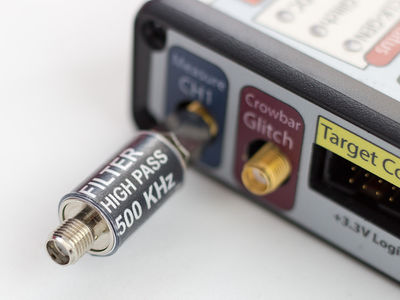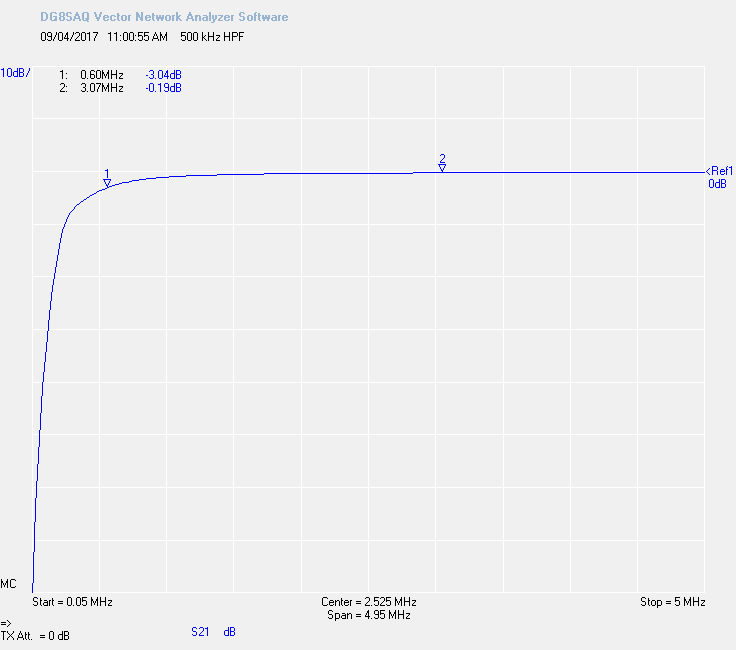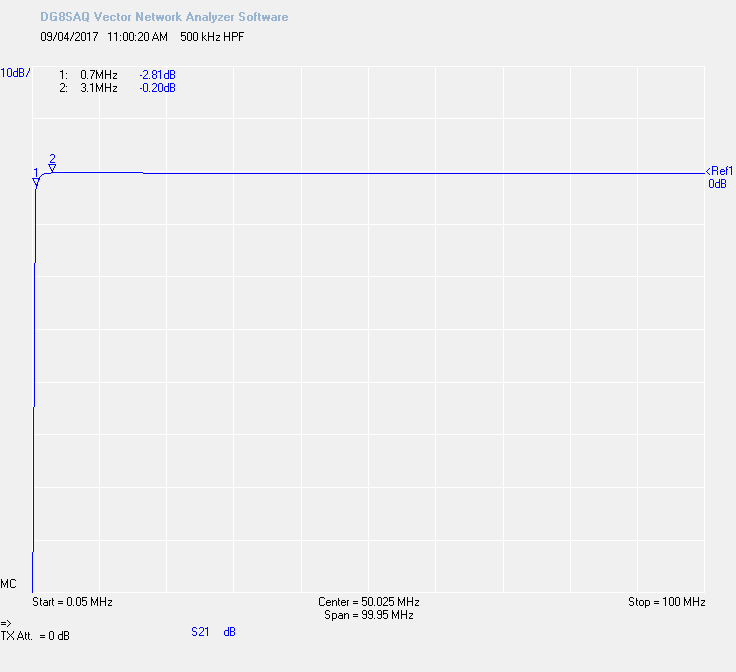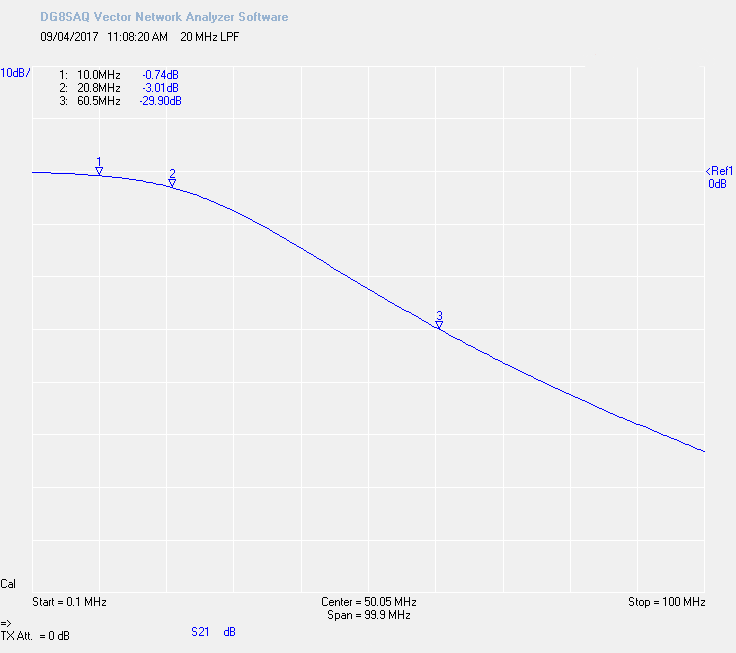| As of August 2020 the site you are on (wiki.newae.com) is deprecated, and content is now at rtfm.newae.com. |
Difference between revisions of "CW508 SMA Analog Filters"
From ChipWhisperer Wiki
| Line 1: | Line 1: | ||
| − | The CW508 Analog Filters provide an easily method of filtering out noise at both low and high frequency. | + | The CW508 Analog Filters provide an easily method of filtering out noise at both low and high frequency. These two filters serve different purposes: |
| − | + | * The high pass filter helps filter out low frequency noise. A common cause of this is switch-mode power supplies, which typically operate at 50 - 500 kHz. | |
| − | + | * The low pass filter helps remove short spikes from the traces. For example, if other peripherals are running on the target, a LPF might help remove their effects from the traces. This is especially helpful for fast hardware crypto with the slow, synchronous captures on the ChipWhisperer. It can be difficult to fix the traces afterwards with a digital filter, so it is much more helpful to use a hardware filter instead. | |
These filters can simply be screwed onto the front of the ChipWhisperer capture device: | These filters can simply be screwed onto the front of the ChipWhisperer capture device: | ||
Revision as of 06:11, 20 April 2017
The CW508 Analog Filters provide an easily method of filtering out noise at both low and high frequency. These two filters serve different purposes:
- The high pass filter helps filter out low frequency noise. A common cause of this is switch-mode power supplies, which typically operate at 50 - 500 kHz.
- The low pass filter helps remove short spikes from the traces. For example, if other peripherals are running on the target, a LPF might help remove their effects from the traces. This is especially helpful for fast hardware crypto with the slow, synchronous captures on the ChipWhisperer. It can be difficult to fix the traces afterwards with a digital filter, so it is much more helpful to use a hardware filter instead.
These filters can simply be screwed onto the front of the ChipWhisperer capture device:



